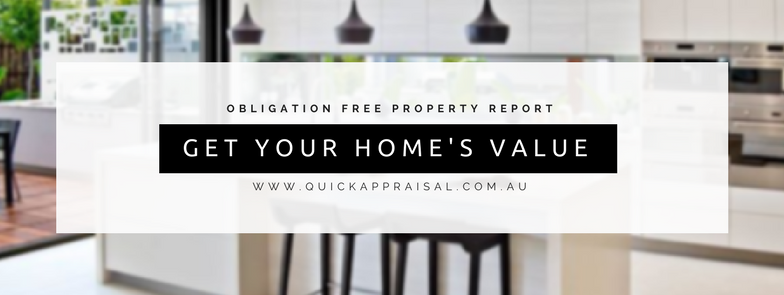The steps to buying real estate
Here is a look at the steps involved in buying, the different ways to buy, where to search for a property and understanding contracts and the settlement process. There are 4 primary ways you can buy real estate in Australia and depending on where you are looking to buy often determines the method. Private Treaty A standard residential property transaction is known as a Private Treaty sale. This is when the vendor or homeowner sets the price they would like to sell their property for and their real estate agent negotiates individually with prospective buyers to achieve a sale as close to this price as possible. Buying at Auction An auction is a public sale conducted by a licensed auctioneer and is governed by strict rules. There is a reserve price, which is essentially the minimum the home will sell for - if bids surpass the reserve and you are the highest bidder, you have to sign the contract right there and then. Buying by Tender Buying NSW property by tender is a process wherein you submit a single offer, usually accompanied by a 5 or 10 percent deposit, and it is accepted or rejected by the vendor. Buying off the plan When you buy property off the plan, you are paying for something that hasn't been built yet. The home can end up slightly different from what you were told. However, it does offer you a lower price point than many other properties. The next step is understanding how much you can afford. A deposit is usually 10 to 20 percent of the purchase price. Now is a good time to talk to LJ Hooker Home Loans, as they can help you create a budget and give you an understanding of how much you will be able to borrow. Hidden costs of buying real estate Purchasing property in Australia also has many hidden costs you need to be aware of. Here is a summary, but a full list can be found at your state or territories Office of State Revenue or Department of Finance. Once you understand the costs, you should secure a home loan. LJ Hooker Home Loans can offer you a wide range of products to suit a number of incomes. We can help you work out your borrowing power, weigh up all of these costs and give you a clear idea of what you can borrow to buy a property. Research It is important that you spend time researching the area you are looking at buying in. Here is a short list of resources that will help you: From there, you can settle on what kind of property to buy - existing homes, off-the-plan units, apartments or houses, or perhaps something else altogether. The Department of Housing's A-Z of Buying is also a useful guide. Where to Look for Properties As for the actual property search, contacting your local LJ Hooker real estate agent is a great place to start. They know the local market intimately and would love to help you find your dream home. As well as the sites like ljhooker.com.au, local and state newspapers can be very useful for finding more information. Importance of inspections Make sure you spend time thoroughly inspecting the property. It is also recommended to have a pre-purchase building/pest inspection on all properties you are serious about buying as it can save you thousands in the long run. To help you we have created inspection checklists you can download. Get our Apartment Inspection Checklist here and our Open House Inspection checklist here. Negotiating by Private Treaty If you have found a property you love and want to make an offer. Make sure you have carefully considered how much you are willing to pay, how much you can afford, whether you go in with your highest price or prefer to go in low. All offers and counter offers must be made in writing and signed by you. The agent is legally obliged to pass on all offers to the vendor as soon as possible. The seller then decides whether or not to accept or reject the offer. In many cases, the sale price is negotiated until both parties agree to a final price. If your offer is accepted you have a five-day cooling off period during which you can withdraw from the sale. Auction Auctions are governed by strict guidelines and vary in each state and territory. In most cases to participate, you must register with the vendor's agent and you will be given a bidders number. The auctioneer oversees the process and all bids from potential buyers are recorded. Before the auction commences the seller will normally nominate a reserve price and if the bidding continues beyond the reserve the property is sold at the fall of the hammer. The seller is also permitted to make one bid called a vendor bid which the auctioneer will announce. If you are the highest bidder, you have to sign the contract of sale right there and then and pay your deposit (normally about 10 percent). Also be aware, there is no cooling off period. Pre-Contract Before you buy a property it is very important that you review the contract in conjunction with your solicitor and if need be other experts such as your financial advisor. The pre-contract stage is an important time to review the purchase and carry out investigations including searches into the property, this is important to ensure you are actually buying the property you believe you are. The search will also highlight if there are any issues with the property and any restrictions on usage that may impact the value of the property or limit what you want to do with it. Understanding your rights or liabilities you have under the contract is very important and all part of this stage. This is the time to negotiate the elements in the contract such as price, settlement date, inclusions, deposit etc. Contract Signing/Exchange If you are satisfied with your pre-contract investigations, have obtained expert advice from your solicitor, and have negotiated a deal with conditions that you are happy with, then you can go ahead and sign the contract documents. Contract Conditions If the contract is subject to any conditions, you need to ensure they are satisfied by the date agreed. This may include work that the seller needs to do by settlement date or ensuring your finance is approved and in order by set dates in the contract. Making sure each condition is delivered by the due date will help ensure the contacts can be exchanged on the date specified in the contract. Pre-Settlement Before the settlement date approaches, you and your solicitor should be preparing everything for the big day. This includes ensuring the required loan money will be available from the bank on the agreed day, signing any bank loan documentation. Your solicitor will also ensure the transfer documentation is in order, that any other documentation for the transaction is ready (ie. lease documents), and that all parties have agreed upon arrangements for settlement (ie. time and place). Settlement of the sale Usually 6 weeks after the contracts were exchanged, if everything has progressed as planned and all conditions in the contract have been you should be ready to settle the sale. This is essentially when your solicitor (or your bank) will hand over the money to the seller in exchange for the transfer documents to the property. If you get to this stage - congratulations you have just bought a property. For any further questions or to find out how you can get into the Australian property market, contact your local LJ Hooker representative.
Different Ways to buy a Property in Australia

Financing a property purchase working out how much you can afford.

Where to look for a property

The buying process

